
I recently joined Pear as a Visiting Partner focused on early-stage investments in Machine Learning / Artificial Intelligence and Developer Tools. As I kicked off this new chapter, I sought advice on how to find the next billion dollar startup. The natural place to start: ChatGPT.
Every time I asked ChatGPT which areas in technology are likely to cause the greatest disruption in the next 5 years?”, it gave me different lists, everything from quantum computing to 5G to Biotech and medicine. But AI/ML was always on top of its list. So to get some detail on the potential of AI/ML, I asked “which problems should AI-based startups solve to maximize growth and ROI?”
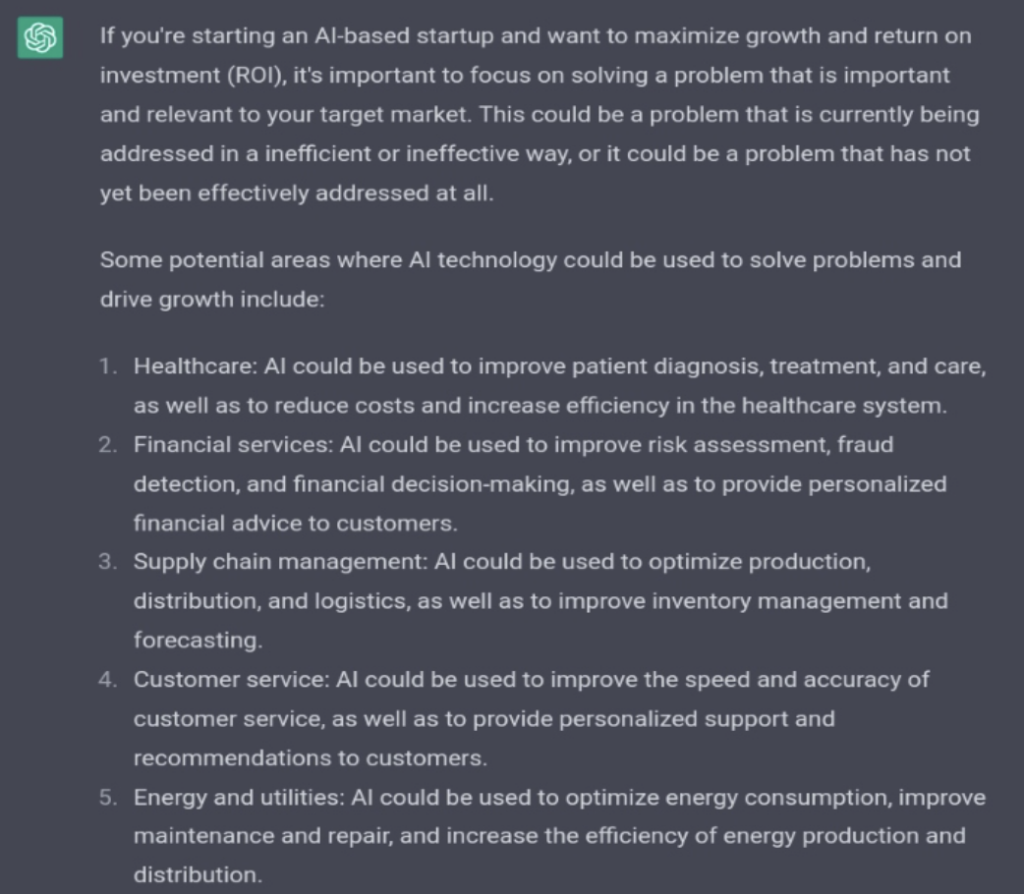
I noticed that ChatGPT picked up acronyms like ROI and expanded them correctly, and correctly interpreted queries with misspelled words (e.g., ‘distributed’ was corrected to ‘disruptive’ based on the context of the chat). That made me sit up in my chair!
ChatGPT’s responses are high level. So I tried to pin it down by asking what specific products our startup should build. It provided a specific list, but I could not get it to stack rank or put numerical values against any of these.
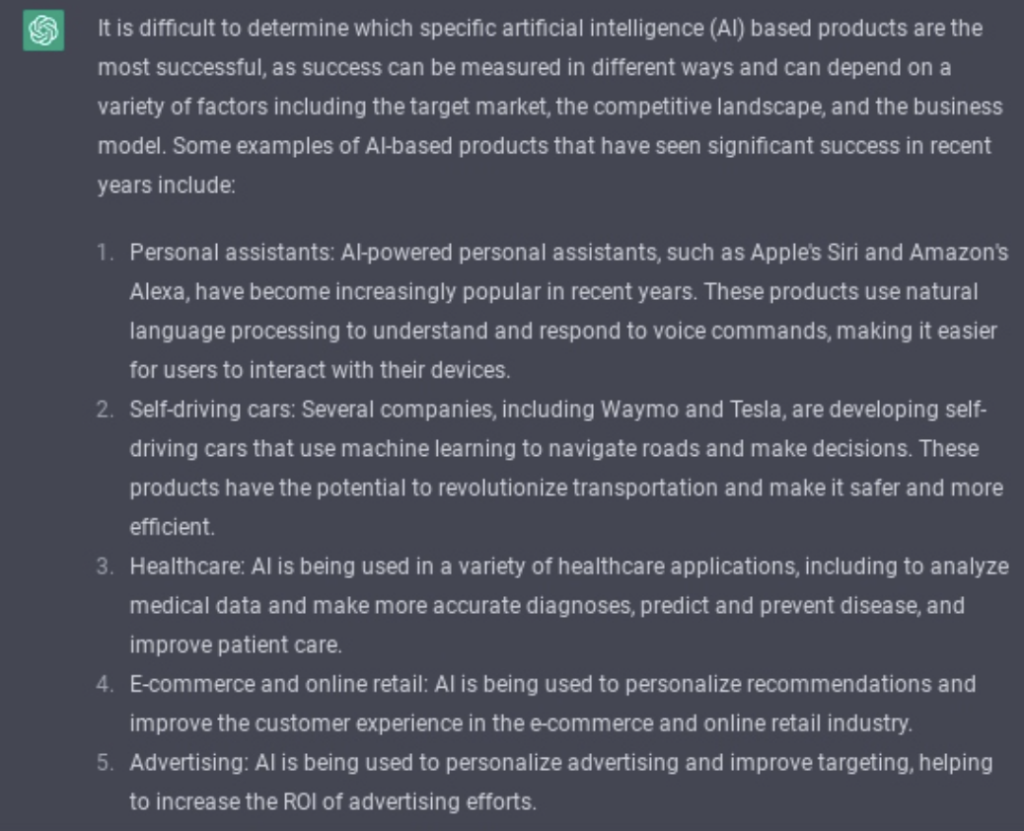
To go deeper, I picked the ‘Personal Assistants’ product idea, and asked
1. “How would we monetize our personal assistant?” and got this reply:
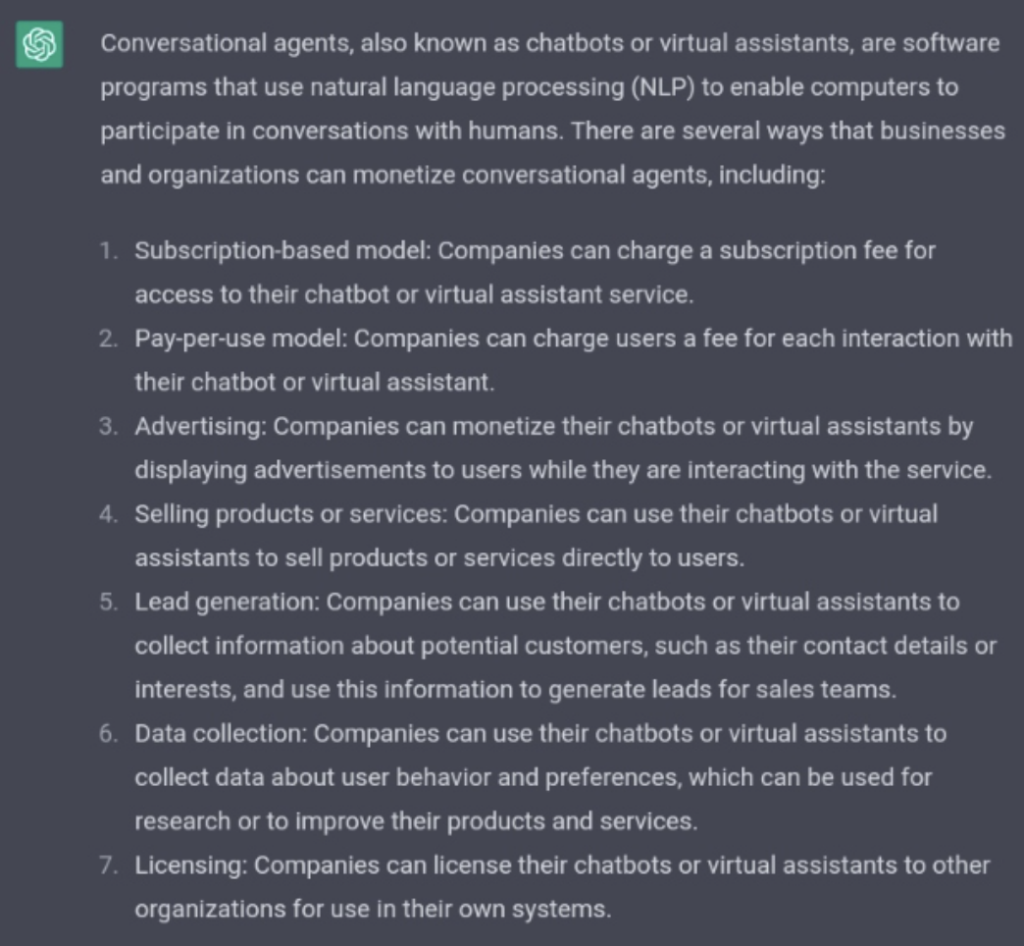
2. And, “how would we differentiate it relative to competition?”
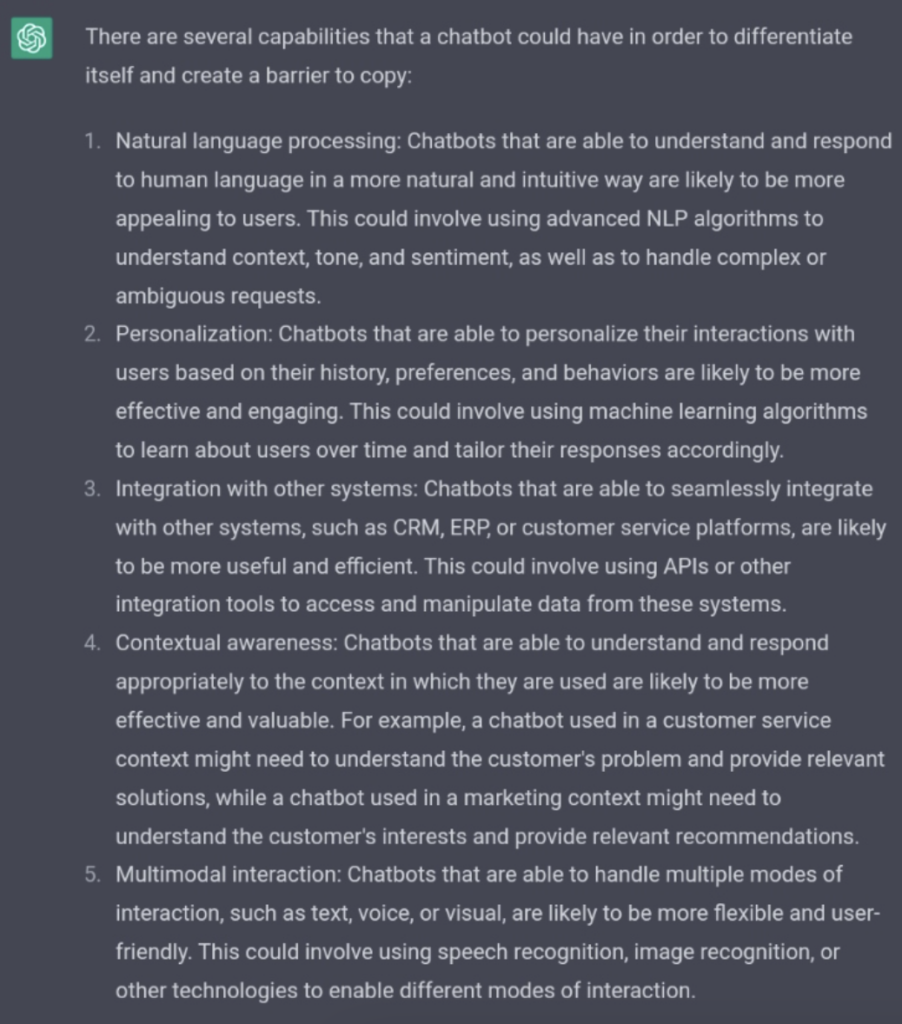
These were surprisingly good answers: multimodal chatbots that are personalized and integrated with enterprise systems could be quite useful. Finally I asked ChatGPT to write the business plan and it did! I shared this business plan with Pear’s healthcare investors and it even passed a few checks. Now if only ChatGPT could generate founders and funding, we’d be all set!
But let’s fast forward to the future, which is what Pear’s portfolio companies are building. First of all they are using AI to solve real problems, such as automating an existing workflow. For example, Osmos.io uses a form of generative AI to create data transformations in a no-code data ingestion platform that’s replacing fragile, hard to maintain hand-coded ETLs. Sellscale uses generative AI to create better marketing emails. Orby.ai discovers and automates repetitive tasks in Finance, HR, customer service, sales, and marketing. And CausalLabs.io is creating the infrastructure layer for UI that is increasingly generated, optimized and personalized by AI.
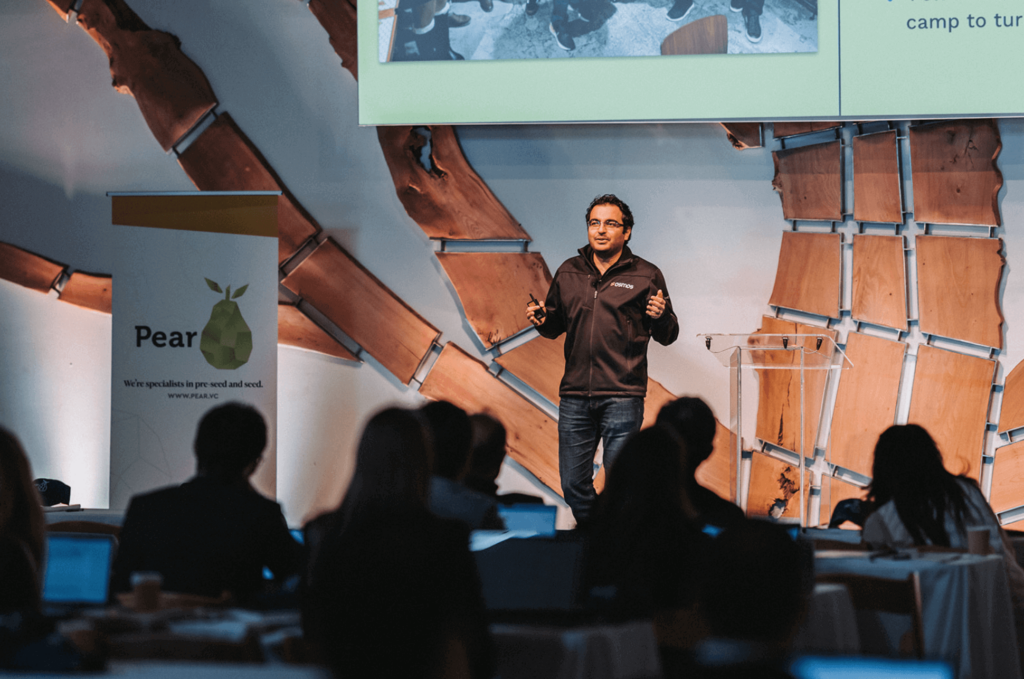
These companies are building on foundational models like GPT and expanding them to get users accurate, effective outcomes that are orders of magnitude more efficient. When a technology creates orders of magnitude better outcomes, it is a game changer.
We believe AI in 2023 is what PC’s were in 1983 or the internet was in 1995 – it will power enterprises and consumers to do things they couldn’t before and generate enormous value in the next five years. Much of it will come from startups that are in the very early stages today.
This brings me back to why I joined the fast-moving startup ecosystem at PearVC in the first place: the time is now, and the opportunity to build the future with our next billion dollar startup is here.